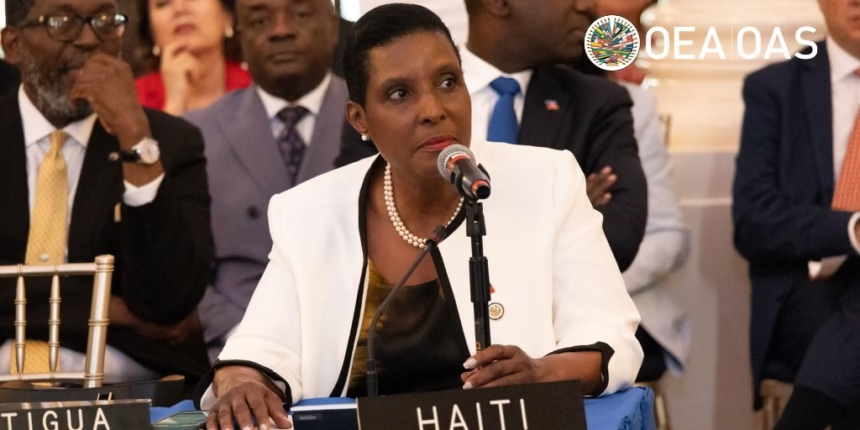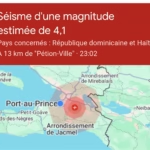Haitian Ambassador Myrtha Désulmé delivered a stark warning to the Organization of American States (OAS), urging immediate and sustained international mobilization to prevent the total collapse of her country.
“The truth is simple: without security, there will be no successful transition, no elections, and no future,” said Désulmé, Haiti’s Permanent Representative to the OAS, in a forceful address that painted a dire picture of the country’s deepening crisis following the assassination of President Jovenel Moïse in 2021.
A Devastating Security and Humanitarian Crisis
Ambassador Désulmé told OAS members that criminal gangs now control 90% of Port-au-Prince, forcing government officials to abandon state buildings in the downtown area. Their influence, she warned, has spread far beyond the capital, reaching the Artibonite and Central departments.
Despite efforts by Haitian security forces, backed by the Multinational Security Support Mission (MSS), she said the response remains “tragically insufficient” in the face of the gangs’ increasingly violent expansion.
Désulmé laid out sobering figures: more than 5,600 homicides recorded in 2024; 1.3 million people internally displaced and living in “deplorable conditions”; 5.7 million facing food insecurity; hospitals, schools, universities, and museums looted or destroyed; an uncontrolled wave of migration; and rampant trafficking of firearms, drugs, and even human organs.
“This nightmare must end,” she declared, calling on Haiti’s international partners to acknowledge both the urgency and complexity of the current crisis.
Security as the Foundation for Any Solution
Referencing Resolution AG/Res 3039 adopted in June by the OAS, Désulmé welcomed the engagement of the new Secretary General, Albert Ramdin, who has launched the drafting of an action plan to be presented to the Haitian government. But she warned that any effective plan must begin with restoring public safety.
“No elections, no economic development, no humanitarian aid delivery will be possible if gangs continue to terrorize the population,” she emphasized.
The ambassador also criticized international policies that she says are hampering Haiti’s ability to respond to the crisis. She pointed in particular to the lingering effects of an old United Nations arms embargo and to the Leahy Law, which restricts U.S. military assistance to foreign forces accused of human rights violations. These restrictions, she argued, are preventing Haitian security forces from acquiring the equipment they need, even as they face heavily armed criminal networks.
Désulmé called for stronger support to the MSS mission and greater investment in specialized training for police officers, military personnel, and customs agents.
A Call for a New International Approach
Beyond immediate security concerns, the ambassador urged the international community to rethink its overall strategy toward Haiti.
“We must move away from endless cycles of emergency humanitarian aid,” she said, “and instead invest in long-term development, local production, and the economic empowerment of the Haitian people.”
“Haiti remains trapped in misery despite decades of aid. It’s time to break the cycle and dare to change the paradigm.”
Invoking History to Inspire Solidarity
Désulmé ended her address with a powerful historical appeal, recalling Haiti’s support for the Latin American independence movements of Simón Bolívar and Francisco de Miranda. That legacy of solidarity, she argued, must be reciprocated today.
“Time is running out. The Haitian people can’t afford to wait any longer. If we don’t act now, tomorrow will be too late.”
https://ctninfo.com/?p=35953&preview=true







